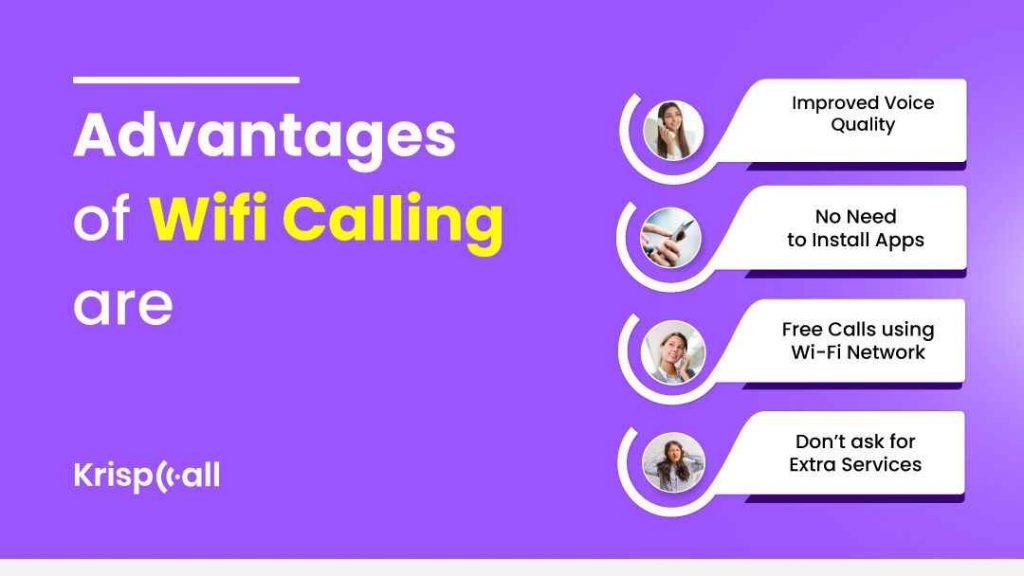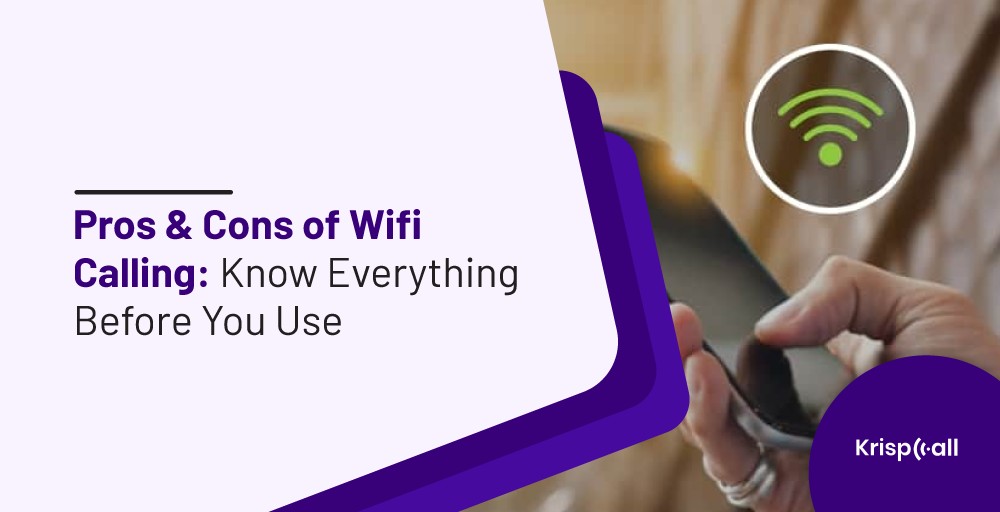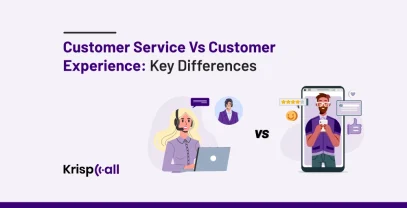Using cellular network 📶 services to perform phone calls can be expensive and cellular phone towers will always not be accessible and strong everywhere.
Wi-Fi calling could appear to be a very good, cost-effective alternative to cellular network providers and cellphone towers.
Just by using a Wi-Fi connection , you can perform Wi-Fi calling from anywhere in the world🌎 with improved call quality.
In this article, you will get to learn the advantages & disadvantages of Wi-Fi calling so that you can make a clear decision to use it or not.
Let’s begin! 🧨
What Are The Advantages of WiFi Calling?
The common benefits of Wi-Fi Calling are as follows:
1. Cellular network is not available everywhere
If you’re too far away from cellular towers for the signal to reach you, or if the signal isn’t powerful enough to penetrate your house, then this could happen.
2. Save Cost on Phone Calls
One of the reasons to choose wifi callings over cellular network phone calling is that wifi calling simply saves your money on phone calls.
If you use the free VoIP application then you just need an internet connection to make a call, it will be free of cost.
3. WiFi Availability
Using a wifi connection, you can make wifi calls from anywhere in the world. Nowadays, wifi connection is even available in public places like hotels, restaurants, marts, malls, public transport, parks, etc.

But those public wifi connections might not be as reliable as your personal & office wifi. However, you can make and receive wifi calls from those public places with wifi connections as well. Wi-fi calling allows you to perform calls or send messages from any location that has access to a wi-fi network.
4. The Alternative Solution over Poor Cellular Service
People who reside in an area with poor cell phone service might rely on wi-fi calling. It serves as a backup for your phone conversations.
It’s usually a good idea to have a backup plan in case your cell phone connection goes down for an extended period.
5. Improved Voice Quality
Wireless operators have been working on improving the phone’s wi-fi connectivity for several years. As a result, LTE audio sounds far superior to cellular systems.
6. No need to Install Apps
Wi-Fi calling does not require the installation of any apps or software. Many phones have wi-fi calling capabilities built-in.
7. Free Calls using Wi-Fi network
By using a strong wifi network connection, you can perform wifi calling free of cost. It means that you can perform a phone call using your wifi connection if you haven’t paid for your phone service to make normal calls.
8. Doesn’t ask for Extra Services
It doesn’t necessitate any special planning or services. Every month, your call minutes will be totaled and credited to your voice plan.
9. Doesn’t need a higher bandwidth
Wi-Fi calling does not need a large amount of bandwidth. As a result, if a good wi-fi connection is available nearby, you can use it.
10. There are no additional logins required
Only your existing cell phone number is used for Wi-Fi calling. It does not necessitate any additional logins to function.
11. Provide a More Reliable Home Connection
You’re probably within just 50 feet of your Wi-Fi router if you’re making phone calls from home. The connection will be more reliable with good calling capabilities compared to making calls from far away.
12. Extends the life of the battery
The frequent search for cellular networks might reduce the battery of your cellphone.
Those are some advantages of wifi calling that will be beneficial for you. However, wifi calling also has some drawbacks.
What Are The Disadvantages of Wifi Calling?
1. Poor Signal Quality in Public Places
Though Wi-fi calling is an excellent choice for calls made from home, it is far less effective when used in public places. Several users share the same wi-fi connection while they are in public places.
When your phone is competing for bandwidth, the quality of your calls may degrade.
2. There aren’t always Wi-Fi Hotspots available
You shouldn’t be sure that everywhere you go there is wi-fi hotspot available.
3. Wi-Fi Calling doesn’t Support Every Device
It’s necessary to have a smartphone with wi-fi calling built-in. Many Android smartphones and the latest iPhones include wi-fi calling capability.
4. International Phone Calls are Restricted
International phone calls might not be offered in some countries using wifi calling. For example, the major carriers offer WiFi calls to the United States when traveling internationally, but not to other countries.
5. Charges for Data usage
If you disconnect your Wi-Fi connection and a call switches to your data plan when you aren’t utilizing your home or business internet service for Wi-Fi calling, you could be charged access fees or other unexpected expenses.
Summing Up
If you’re a frequent traveler or rely heavily on internet-based communication, WiFi calling might be a game-changer. But if you prioritize reliability and worry about internet stability, sticking with cellular networks might be your best bet. Ultimately, weigh the pros and cons against your needs and make an informed decision.
If your cell phone doesn’t support wi-fi calling then you can simply install a VoIP application on your phone. When it comes to making wi-fi calls using a VoIP application, we highly recommend KrispCall. KrispCall is a leading virtual cloud-based telephony solution for individuals as well as businesses. Even for your business, it will always help you to stay competitive in the market.
FAQ
Is Wifi calling free?
WiFi calling is often free, but you will have to pay if you wish to conduct an international call.
There is no extra charge for Wi-Fi calls but they are deducted from your monthly voice plan.
Is Wi-Fi calling good or bad?
Since Wi-Fi calling is a fantastic alternative for calls made from homes, it is far less reliable when used in public places.
In-home, you are always near to routers and don’t have to share wifi connections with many people. But in public places, several users share the same Wi-Fi connection at the same time.
Does Wifi Call use data?
It does not utilize data from your phone plan if the call is conducted through a Wi-Fi network. But if the wifi calling is made through the mobile network, it obviously uses your mobile data plan.
Is Wifi Calling Safe?
When you’re utilizing a Wifi connection your mobile provider encrypts your audio when you make a call. That makes such calls entirely safe.
However, you have to be careful while using a public wifi connection.
What if WiFi calling isn’t an option?
There is a chance that your device doesn’t have the option of wifi calling. Don’t Worry!
If your cell phone doesn’t support you can simply make wifi calls using KrispCall or other VoIP applications.
Does WiFi calling drain or save your battery?
WiFi calling will help save battery life in locations with weak cellular coverage but a good WiFi signal. If your cellular signal is weak or non-existent, you might consider shutting it off to save your battery.
Is Wi-Fi calling better than 4G?
Both 4G and WiFi calling have certain benefits that make them superior to one another. While 4G is a cellular connection method, WiFi calling is a cloud-based communication option. Depending on the user’s demands and circumstances, one may be superior to the other.





